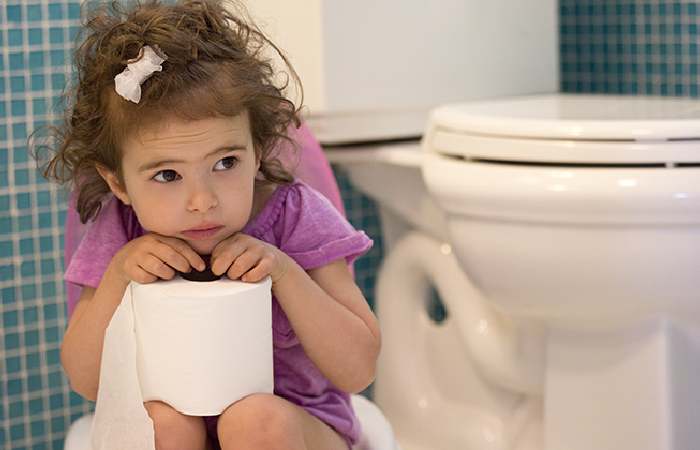Covid Constipation
Constipation is not a usual symptom of covid -19, which may conduct in constipation for a few members. During covid 19, patients suffered from fever, cough, nausea, constipation, and abdominal pain. A CT scan showed that he had colonic ileus when the intestines’ muscles stopped contracting.
Other general symptoms can include fatigue, fever and pain. Some people with long COVID may have postural tachycardia syndrome (PoTS) symptoms, which may need further investigation. Symptoms include lightheadedness, palpitations and fatigue.
Table of Contents
What is Covid Constipation
Patients (aged 19 to 83 years, with a BMI of 17.5–22) presented with a variety of gastrointestinal (GI) symptoms, including epigastric pain, constipation, diarrhoea, nausea, vomiting, muscle pain, and melena; patients have not responded to treatment with conventional therapeutic agents.
Constipation as a condition is relatively common, according to the National Institute of Diabetes and Digestive and Kidney Diseases (NIDDK). About 16 out of 100 adults have signs, increasing to 33 out of 100 in those over 60. So it’s hard to say whether COVID-19 causes the condition or is a fluke when it happens to people with COVID-19, John Sellick, DO, an infectious disease physician. Still, if you find yourself with COVID-19 and constipation simultaneously, you might wonder if there’s a connection. In some cases, the virus can indirectly lead to constipation.
Covid Constipation
A subset of patients develop IBS after a gastrointestinal infection, which may be bacterial (e.g., Campylobacter jejuni), parasitic (e.g., Giardia), or viral (e.g., Norovirus), called PI-IBS. COVID-19 is a new viral infectious disease for humanity. It has only been reported since December 2019. Therefore, its long-term consequences are still missing. 
Given that a subset of patients develops PI-IBS after viral gastroenteritis and that the SARS-CoV-2 virus can anchor and enter the human body through cells located in the gastrointestinal tract to induce GI symptoms, it is suspected that there is potential for developing IBS after COVID-19. Observational and follow-up studies are required in patients who have recovered from COVID-19.
Post-Covid Constipation Treatment
Post-COVID-19, also known as “long-term COVID”, refers collectively to a constellation of long-term symptoms that some people experience after experiencing COVID-19. People who have experienced a post-COVID-19 condition are sometimes called “debtors”.

While most people who develop COVID-19 make a full recovery, some people develop a variety of medium- and long-term effects, such as fatigue, shortness of breath, and cognitive dysfunction (such as forgetfulness, confusion, or a lack of mental focus and clarity). Some people are also experiencing psych, ological effects as part of the post-COVID-19 condition.
These symptoms may persist from their initial illness or develop after recovery. They may come and go or recur over time.
The condition after COVID-19 can affect a person’s skill to carry out daily activities such as work or housework.
Is Constipation a symptom of COVID-19?
Constipation is not a typical symptom of COVID-19, but COVID-19 can lead to Constipation directly or indirectly in some people.
A case study published in May 2020 described a man with COVID-19 who came to the hospital with fever, cough, nausea, Constipation, and abdominal pain. A computed tomography (CT) scan showed that he had colonic ileus when the muscles of the intestines stopped contracting.
A study published in June 2020 reported that several people with COVID-19 remained admitted to a hospital in Iran with various gastrointestinal (GI) symptoms, including Constipation. Researchers found the gut microbiome of people with COVID-19 who remained discharged from the hospital. It differs from the gut microbiome of the general population. It is thought that this change may contribute to GI symptoms.
In a February 2021 study, researchers examined the effects of faecal microbiota transplants on a group of 11 people with COVID-19 discharged from the hospital with GI symptoms. Three of the people were constipated.
Faecal microflora transplantation is a procedure that involves the transfer of healthy bacteria into the intestines. All three people with Constipation experienced an improvement in their symptoms after the procedure.
Medicines that lead to Constipation
Some medications used to treat COVID-19 can also lead to Constipation.
In a 2021 study, researchers investigated potential therapies for treating COVID-19. They reported Constipation as a side effect of the drugs famotidine and bevacizumab. In a May 2020 study, researchers found that 14 per cent of people treated with the antiviral drug redeliver developed Constipation. Lopinavir, ribavirin, and some immunomodulatory drugs can also cause Constipation in people with COVID-19.
Covid and Constipation Omicron
Earlier studies found that cold-like symptoms were common in Omicron patients. They stated that the top five symptoms associated with the variant were:
- Cold
- Headache
- Mild or severe fatigue
- Sore throat
- Sneezing
But other common symptoms of COVID-19, such as fever, cough, and harm of taste or smell, are still important signs to watch out for with the Omicron variant.
WHO experts said no data suggests that Omicron causes symptoms different from those caused by other variants of COVID-19.
Covid Constipation Reddit
I know diarrhoea and other intestinal problems remain listed as symptoms of COVID. However, I have been constipated for five days and was wondering if this is something I should be concerned about it.
It remains pretty well established that gastrointestinal issues are a symptom of COVID. I’m just wondering if constipation isn’t one of them.
According to findings published on March 18 in the American Journal of Gastroenterology, patients with gastrointestinal (GI) symptoms who were admitted to the hospital and diagnosed with COVID-19 were more likely to develop the severe disease than patients without GI symptoms.
However, the unexpectedly large proportion is partly due to the inclusion of anorexia, said Brennan M.R. Spiegel, MD, MSHS, co-editor of the American Journal of Gastroenterology.
“If you leave out anorexia, which is very nonspecific, the percentage of COVID-19 patients with GI symptoms is about 30%,” Spiegel told Medscape Medical News.
Covid Constipation Toddler
Constipated toddlers usually poop less than twice a week. Their poop is hard, dry, and painful. Constipation most often occurs due to a low-fibre diet, dehydration, changes in routine, or resistance to toilet training. Treatment usually involves home remedies such as dietary changes or changes to their performance.
What is Toddler Constipation?
Constipation in toddlers is prevalent. Constipated toddlers poop (have stools) less often than usual. Every toddler is different, but this usually means they poop less than twice a week. Their poo (seat) is hard, dry, and significant when they leave. Their stools may be difficult or painful to pass.
Constipation in toddlers usually does not last long. There is usually nothing to worry about it. It is rarely a symptom of an underlying medical condition.

Long Covid Constipation
If you recover from COVID-19 but are still going through some symptoms, you may have a so-called post-COVID condition. Sometimes it is also called “long COVID.” Some of the most common symptoms of post-COVID-19, or as you said, prolonged COVID, include shortness of breath, and cognitive dysfunction, which people also call brain fog. Like fatigue.
These are the three most common. However, there are over 200 symptoms that have remained reported in patients. So the list is pretty long. So other symptoms that patients or persons may experience include chest pain, like difficulty speaking. Some have defined anxiety or depression, fever, muscle aches, loss of smell, and loss of taste. So the list is quite long.
Global Research on Coronavirus Disease (COVID-19)
WHO is taking the world’s scientists and global health professionals organized to accelerate the research and development procedure and grow new norms and standards to have the spread of the coronavirus pandemic and help care for those affected.
The R&D Blueprint has started accelerating diagnostics, vaccines, and therapeutics for this novel coronavirus. The solidarity of every country will remain essential to ensure rightful access to COVID-19 health products.
Conclusion:
World Health Organization (WHO). A virus causes the coronavirus disease (COVID-19), NOT bacteria. The virus that causes COVID-19 is in a family of viruses called Coronaviridae.
Coronavirus disease 2019 is a highly infectious disease that originated. Including epigastric pain, constipation, diarrhoea, and nausea. Although COVID-19 doesn’t typically cause constipation, other factors related to the infection may indirectly cause it.



